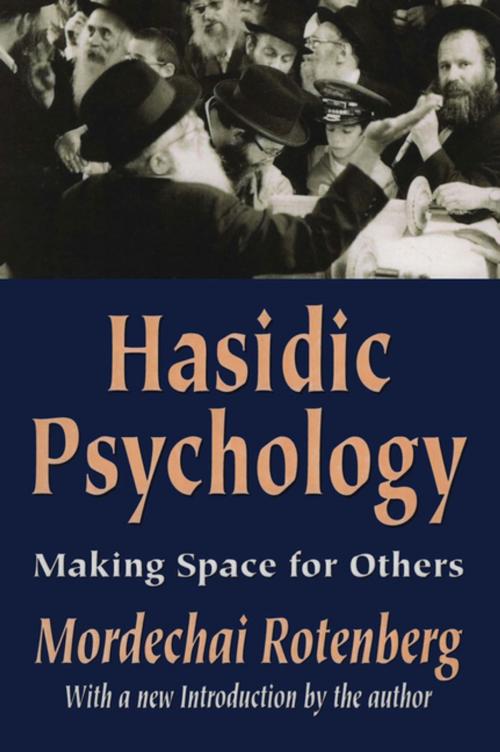Hasidic Psychology
Making Space for Others
Nonfiction, Health & Well Being, Psychology, Social Psychology| Author: | Mordechai Rotenberg | ISBN: | 9781351310468 |
| Publisher: | Taylor and Francis | Publication: | January 16, 2018 |
| Imprint: | Routledge | Language: | English |
| Author: | Mordechai Rotenberg |
| ISBN: | 9781351310468 |
| Publisher: | Taylor and Francis |
| Publication: | January 16, 2018 |
| Imprint: | Routledge |
| Language: | English |
Interest in the impact of ethical systems and social or religious ideologies on socio-behavioral patterns is a longstanding theme in social science research. While interest may have begun with Max Weber and his thesis of the relationship between the Protestant ethic and the spirit of capitalism, it extends far beyond this. Surprisingly, few studies have delved into the socio-behavioral patterns emanating from Jewish ethics. This book, with a new introduction by the author, fills that gap.As Hasidic Psychology makes clear, Jewish ethics are unique in many ways, especially in that they are essentially other-centered. Man's ability to affect his own future and interpersonal relations are explained according to the theory of contraction, popularized in Hasidic thought: God, by contracting Himself to evacuate space for the human world, bestowed upon man the power and responsibility to determine his own future, and even affect God's disposition.In the first part of the book, the sociological-structural concept of mono versus multiple ideal labeling is introduced. This concept refers to a social system in which diverse material and spiritual actualization patterns are structurally introduced as equal social ideals. In the second part, basic tenets of classic interaction and socialization are compared to the interpersonal perspective, and the contraction theory is explained as a process of "mutual emulation," whereby father and son affect each other. In the third part, a functional approach to deviance is developed through the Hasidic process known as "ascend via descend."
Interest in the impact of ethical systems and social or religious ideologies on socio-behavioral patterns is a longstanding theme in social science research. While interest may have begun with Max Weber and his thesis of the relationship between the Protestant ethic and the spirit of capitalism, it extends far beyond this. Surprisingly, few studies have delved into the socio-behavioral patterns emanating from Jewish ethics. This book, with a new introduction by the author, fills that gap.As Hasidic Psychology makes clear, Jewish ethics are unique in many ways, especially in that they are essentially other-centered. Man's ability to affect his own future and interpersonal relations are explained according to the theory of contraction, popularized in Hasidic thought: God, by contracting Himself to evacuate space for the human world, bestowed upon man the power and responsibility to determine his own future, and even affect God's disposition.In the first part of the book, the sociological-structural concept of mono versus multiple ideal labeling is introduced. This concept refers to a social system in which diverse material and spiritual actualization patterns are structurally introduced as equal social ideals. In the second part, basic tenets of classic interaction and socialization are compared to the interpersonal perspective, and the contraction theory is explained as a process of "mutual emulation," whereby father and son affect each other. In the third part, a functional approach to deviance is developed through the Hasidic process known as "ascend via descend."















